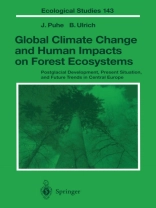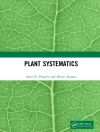The inclusion of forests as potential biological sinks in the Kyoto Protocol to the United Nations Framework Convention on Climate Change (UNFCCC) in 1997 has attracted international attention and again has put scientific and political focus on the world’s forests, regarding their state and development. The international discus- sion induced by the Kyoto Protocol has clearly shown that not only the tropical rain forests are endangered by man’s activities, but also that the forest ecosystems of boreal, temperate, mediterranean and subtropical regions have been drastically modified. Deforestation on a large scale, burning, over-exploitation, and the degra- dation of the biological diversity are well-known symptoms in forests all over the world. This negative development happens in spite of the already existing knowledge of the benefits of forests on global energy and water regimes, the biogeochemical cycling of carbon and other elements as well as on the biological and cultural diversity. The reasons why man does not take care of forests properly are manifold and complex and there is no easy solution how to change the existing negative trends. One reason that makes it so difficult to assess the impacts of human activity on the future development of forests is the large time scale in which forests react, ranging from decades to centuries.
J. Puhe & B. Ulrich
Global Climate Change and Human Impacts on Forest Ecosystems [PDF ebook]
Postglacial Development, Present Situation and Future Trends in Central Europe
Global Climate Change and Human Impacts on Forest Ecosystems [PDF ebook]
Postglacial Development, Present Situation and Future Trends in Central Europe
Bu e-kitabı satın alın ve 1 tane daha ÜCRETSİZ kazanın!
Dil İngilizce ● Biçim PDF ● ISBN 9783642595318 ● Yayımcı Springer Berlin Heidelberg ● Yayınlanan 2012 ● İndirilebilir 3 kez ● Döviz EUR ● Kimlik 6328316 ● Kopya koruma Adobe DRM
DRM özellikli bir e-kitap okuyucu gerektirir












